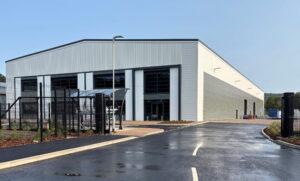Senedd Elections in 2026 – Could Reform Upset the Applecart?

One of the United Voices Senedd Lobby Group's previous Senedd protests
Who Are the Contenders and How Could the Outcome Impact Welsh Residents?
Written by Lisa Baker
The 2026 Senedd (Welsh Parliament) elections promise to be a pivotal moment in Wales’s political history. With potential reforms to the electoral system on the horizon, a healthcare crisis, controversial policy changes such as the 20mph speed limit, and the re-emergence of Nigel Farage’s political influence under Reform, the stakes are high for political parties and voters alike.
Electoral Reform: Changing the Rules of the Game
One of the most significant changes for the 2026 elections could be the implementation of electoral reforms. The proposed expansion of the Senedd from 60 to 96 members, coupled with a move towards proportional representation, has been met with both enthusiasm and skepticism. Proponents argue that these changes will create a more representative and inclusive parliament. Critics, however, warn that smaller parties could gain disproportionate influence, leading to unstable coalitions.
For Welsh residents, these reforms could lead to a stronger focus on local representation and diverse voices in the decision-making process. However, the potential for fragmented governance might slow down legislative efficiency.
Adding to the uncertainty is the emergence of Nigel Farage’s Reform, which has reignited debates around devolved powers and the broader UK political system. Farage’s potential to influence disillusioned voters could potentially disrupt traditional party dynamics in Wales, and he has already indicated that the elections are an important target for them.
Current Events Shaping the Election
20mph Speed Limit Controversy
The Welsh Government’s decision to introduce a widespread 20mph speed limit in some areas has sparked widespread debate. While some hail it as a progressive step towards reducing road accidents and emissions, others criticize it as disruptive and unnecessary. This policy could become a litmus test for the ruling parties’ ability to balance public health priorities with practical governance.
Healthcare Crisis
The ongoing healthcare crisis in Wales, marked by long NHS waiting times and staff shortages, is a central issue for many voters. Parties will be judged on their ability to propose viable solutions to improve service delivery and address workforce challenges. Failure to do so could cost incumbents dearly at the polls.
Controversial Driving Plans
The Senedd’s broader transport strategy, as outlined in the “National Transport Delivery Plan 2022-2027,” has added fuel to the fire.
Page 45 of the Welsh Government’s plan highlights proposals to further restrict car usage in urban areas, promote active travel, and significantly expand public transport options, however the biggest emphasis is on active travel such as walking and cycling – with further restrictions being placed on driving, mentioning such sensitive topics like parking reallocation and road charges for drivers. While these initiatives align with climate goals, the existing Labour Government has faced criticism from residents concerned about feasibility, rural connectivity, and the economic impact on small businesses. These plans will likely be a contentious issue during the election campaign.
Climate Projects and Land Use
The Welsh Government’s climate projects have also sparked heated discussions. Among the most contentious initiatives is the funding of tree-planting programs in Uganda, which critics argue diverts resources that could be better spent locally. Additionally, plans to repurpose farmland for wind and solar farms, along with potentially placing new environmental demands on farmers have raised concerns among agricultural communities, who are also concerned about inheritance taxes imposed by the new UK Labour Government. While these measures aim to meet ambitious climate targets, opponents worry about the loss of productive land and potential disruptions to the rural economy. These policies could become a flashpoint in debates over the balance between environmental goals and economic sustainability.
The Contenders: Who’s in the Race?
Labour Party
The Welsh Labour Party, led by its new First Minister, Eluned Morgan, remains a dominant force. Labour will likely campaign on its track record of public health and social policies, despite criticisms over its handling of the healthcare system and education, with Wales recording the lowest-ever PISA scores in 2023. The party is also likely to be impacted by the huge anti-20mph petition which scored more votes than Labour did in the last election. It’s success may hinge on its ability to navigate voter frustrations and deliver compelling new policies.
Plaid Cymru
Plaid Cymru, under the leadership of Rhun ap Iorwerth, will aim to capitalize on increasing support for greater autonomy and independence. Plaid is expected to emphasize policies on housing, the environment, and promoting the Welsh language. A strong performance could position Plaid as a kingmaker in a coalition scenario.
Conservatives
The Welsh Conservatives face an uphill battle following a challenging period for the UK-wide party. Leadership changes and policy recalibration will be crucial as they attempt to rebuild trust and present themselves as a viable alternative to Labour.
The Conservatives’ stance on repealing the 20mph speed limit could resonate with discontented voters, with popular MS’s like Natasha Asghar and Tom Giffard taking time to talk to petitioners in person and form alliances at the group’s regular protests on the Senedd steps, but the 20mph is far from the only issue the group has raised, with many campaigners describing Welsh Labour’s policies as ‘anti-motorist’.
One person who believes roads will play a crucial role in 2026 is 20mph petitioner Mark Baker. He told us:
“Despite the millions invested in ‘active travel’, apart from in cities, most cycle paths sit unused and certainly where I live, in Bridgend, cyclists don’t use them anyway. They congregate in large groups on the roads, next to empty cycle paths, which have made the road space narrower and commuting more difficult.
“Meanwhile, many of the Welsh roads used by motorists and cyclists alike are in an appalling condition with gaping potholes and the M4 is completely unfit for purpose, with huge swathes now limited to 50mph leading to massive congestion and pollution without a point. Businessmen wanting to invest in Wales have turned back when they hit the M4 in Newport. Why isn’t that a priority?
“It’s not like public transport is much better. Much of rural Wales has to contend with poor transport links – and services like the Fflecsi Bwcabus, once a lifeline for elderly and disabled residents in West Wales, have been cancelled rather than improved. It’s ridiculous and I will consider voting for any party that listens to drivers and understands the need for infrastructure investment across Wales, because what works for MSs travelling from Penarth to the Senedd will not work in rural Wales.”
Nigel Farage and Reform
Nigel Farage’s resurgence into mainstream politics with his reform-focused agenda could have a significant impact. While his direct involvement in the Welsh elections remains speculative, they party has already signed a number of candidates to stand in key seats, and his influence could embolden populist movements and pressure established parties to address voter frustrations more directly. Like the Conservatives, Nigel Farage has pledged to scrap the 20mph policy on day one and has also pledged to end climate projects.
Smaller Parties and New Entrants
The Liberal Democrats, Greens, and potential new parties like Propel could benefit from electoral reforms, which may grant them greater representation. These parties often focus on niche issues, such as environmental sustainability or regional development, which could resonate with specific voter bases.
Potential Impacts on Welsh Residents
The outcome of the 2026 elections could shape the lives of Welsh residents in several ways:
- Public Services: While all parties are likely to promise investment in health and education, both of which are currently struggling, Plaid Cymru’s influence could lead to bold new policies on housing and local governance.
- Autonomy and Independence: A Plaid Cymru surge could reignite debates on Welsh independence, potentially leading to a referendum. While this could empower Wales’s national identity, it might also create economic uncertainties.
- Economic Policies: A coalition government might bring diverse perspectives on economic growth, focusing on green initiatives, regional investment, or tax reforms. However, competing priorities could slow policy implementation.
- Representation: Proportional representation could bring more diverse voices to the Senedd, but it might also make decisive governance more challenging.
- Transport and Infrastructure: The 20mph speed limit policy and its potential repeal or modification could become a focal point for discussions around sustainable transport and urban planning. Additionally, the controversial driving restrictions and transport initiatives could polarize voters along urban-rural lines. The Conservatives have promised investment in Wales’ road infrastructure and along with Reform, have pledged to scrap the controversial 20mph as a day one policy.
- Environmental Policies: Climate initiatives, including tree planting abroad and the use of farmland for renewable energy projects, could create tensions between environmental advocacy and the needs of local economies, shaping rural and urban voter alignments.
Looking Ahead
As the 2026 Senedd elections approach, Welsh residents will need to weigh their priorities carefully. The interplay of electoral reform, party strategies, and voter sentiment will determine not just the composition of the next government but also the direction Wales takes in the years to come.
One thing is certain: this election has the potential to reshape the political landscape of Wales and redefine its role within the UK.
—
Image: discontented campaigners from the United Voices Senedd Lobby Group protesting against 20mph and electoral reform outside the Senedd.





